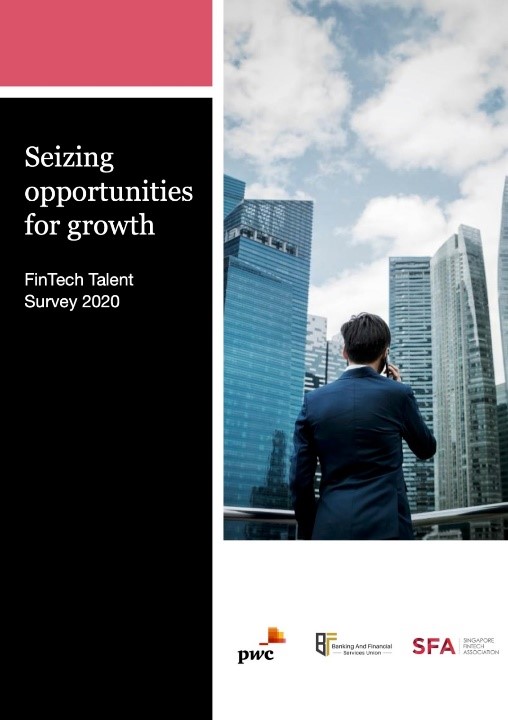 Despite the global impact of COVID-19, demand for talent in Singapore’s FinTech sector remains strong, according to the latest findings from the FinTech Talent Report 2020 – a joint survey by the Singapore FinTech Association (SFA) and PwC Singapore exploring the impact of the pandemic on the attraction, recruitment, and retention of talent among FinTechs in Singapore.
Despite the global impact of COVID-19, demand for talent in Singapore’s FinTech sector remains strong, according to the latest findings from the FinTech Talent Report 2020 – a joint survey by the Singapore FinTech Association (SFA) and PwC Singapore exploring the impact of the pandemic on the attraction, recruitment, and retention of talent among FinTechs in Singapore.
“It is very encouraging to see that the optimism in the demand for talent is even higher than last year despite the pandemic and economic situation. This shows that the FinTech industry is resilient and continues to be a strong source of growth in the market. In fact, the challenge is the availability of talents with the right skill set and mind set. This is also where efforts by key organizations, like BFSU and SFA, are focused on”, Ms Wanyi Wong, FinTech leader at PwC Singapore said.
Key finding of the FinTech Talent Report 2020 include:
1. The impact of Covid-19 on the hiring plans of surveyed FinTech firms is negligible, with most firms still looking to expand their headcount in the coming months. For firms which are not looking to hire more staff, Covid-19 was the reason provided among half of respondents. Talent gaps exist across the various identified job functions but for the most part these are manageable, with firms generally reporting no shortfalls or a shortfall of 0-25 per cent in their desired headcounts.
2. When hiring talent, FinTechs are likely to draw on their own personal networks and connections, in addition to job portals, to find the right talent for their needs. A trend similar to findings from the 2019 Talent Survey. Compared to 2019 findings, more Singaporean FinTech firms are focusing on hiring local talent, though the majority of respondents were in favor of hiring both foreign and domestic talent. This could be due to a combination of factors like increased capabilities of domestic talent and greater challenges in hiring foreign talent. Challenges persist for start-ups as local talent is more likely to be attracted to larger, more established firms and many applicants have unrealistic salary expectations.
3. FinTechs in Singapore are generally aware of the support schemes and initiatives available to them to help them grow and hire talent. For those availing themselves of the FSTI scheme, and those planning to use the FSTI 2.0 scheme, a majority in each instance either has or will use the grant towards manpower costs. Additionally, many FinTech’s feel that the current situation is an opportune time to upskill their staff so resources and grants may be applied for to achieve this.
4. Despite a growing number of training partnerships and FinTech qualifications, many FinTechs in Singapore are unaware of them and those that are aware remain generally neutral in their assessment on material coverage. Despite this, surveyed firms are willing to hire candidates who completed the programs but highlighted that work experience was more valued than training. Most respondents agreed that increased dialogue between industry, academia, and regulators was beneficial in ensuring local talent could be developed to meet the needs of FinTech firms.
5. The imminent launch of digital banks in Singapore is largely perceived to be a boon for the talent pipeline, with the combination of banking and FinTech seen as offering the best of both worlds and driving interest in people to learn the necessary skills to work in such institutions. Such a result would likely have spill-over benefits to the wider FinTech community, increasing the availability of local talent across the industry.
The survey was sent via email to 1,491 individuals working at FinTech firms with a presence in Singapore. The report was launched by Mr. Patrick Tay, Assistant Secretary-General of the National Trades Union Congress (NTUC), prior to the start of the ‘Supporting and attracting FinTech talent in Singapore’ panel discussion, which was co-organized by SFA and the Banking and Financial Services Union (BFSU) as part of the Singapore FinTech Festival 2020.
The report can be downloaded here.
By MediaBUZZ


